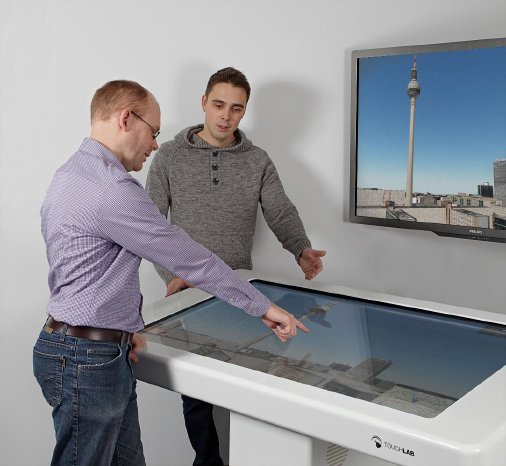Whenever a large-scale construction project is pending in a city or municipality, the citizens are legitimately interested in understanding how it might change their lives. 3D models have become increasingly popular in recent years in order to provide information on a project from the very beginning in a comprehensible and comprehensive manner. 3D city models or comparable spatial data, however, can quickly turn into an enormous flood of data. In order to master it, special software, high-performance computers and specifically trained staff are needed. “Various digital information, such as aerial views, construction plans or terrain models are compiled to one overall model in laborious suboperations”, explains Michel Krämer from the “Spatial Information Management” competence center of Fraunhofer IGD. “This is a very time-consuming process, often taking several days in practice”.
The GEOToolbox developed by the researchers of Fraunhofer IGD in Darmstadt should now significantly reduce this effort. “As we are faced with such tasks time and again, we have developed some tools to make our lives easier”, says Krämer. Fraunhofer IGD has more than two decades of experience in processing large 3D data and a long expertise in 3D spatial information. According to Krämer, the institute thus provides mainly smaller companies in the spatial industry with an opportunity to develop new applications more quickly and thus save costs.
Krämer and his colleagues are not worried about making many competitors this way. “It is Fraunhofer’s task to provide the industry with academic basics”, says Krämer. “The potential of 3D models in urban planning for citizens and investors must be better exploited. If our GEOToolbox can make a contribution, then everyone benefits and opportunities for further research are created.”
The GEOToolbox will be presented together with other developments at this year’s INTERGEO in Stuttgart in Hall 6 Booth F6.037 from September 15 through 17.
For more information:
http://www.igd.fraunhofer.de/en/Institut/Abteilungen/Geoinformationsmanagement


